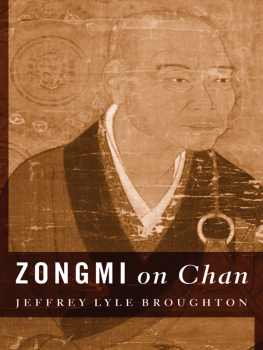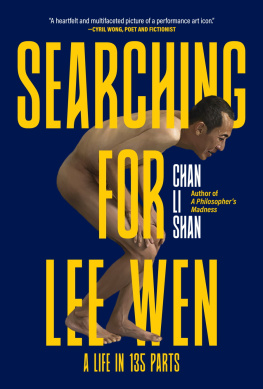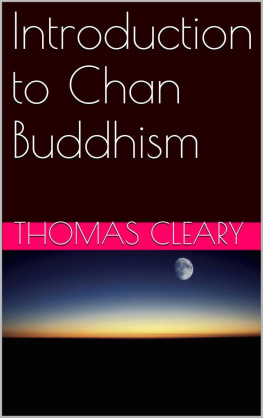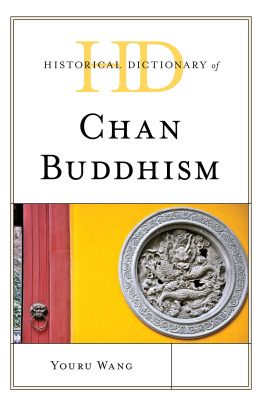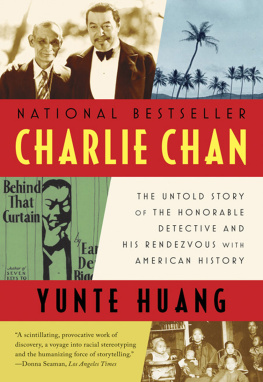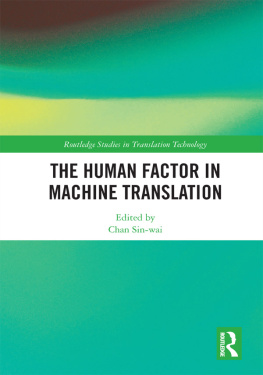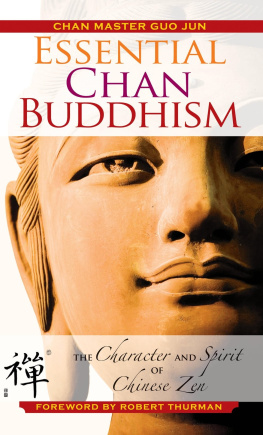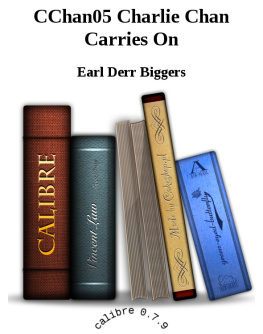Zongmi on Chan
TRANSLATIONS FROM THE ASIAN CLASSICS

Translations from the Asian Classics
EDITORIAL BOARD
Wm. Theodore de Bary, Chair
Paul Anderer
Irene Bloom
Donald Keene
George A. Saliba
Haruo Shirane
Wei Shang
Burton Watson
Zongmi on Chan
Jeffrey Lyle Broughton

COLUMBIA UNIVERSITY
NEW YORK
Columbia University Press
Publishers Since 1893
New York Chichester, West Sussex
cup.columbia.edu
Sponsored by the Chiang Ching-kuo Foundation for International Scholarly Exchange.
Copyright 2009 Columbia University Press
All rights reserved
E-ISBN 978-0-231-51308-1
The author thanks Abbot Aoki of Kumida-dera in Osaka for kind permission to reproduce the portrait of Zongmi used as this books frontispiece.
Thanks to Yoshioka Nobuko for her kind assistance in securing permission from Kumida-dera and Stephen M. Strasen for his kind assistance in digitizing the image. Source: Portrait of Guifeng Zongmi (Keih Shmitsu; 780841). Hanging scroll. Ink with color on silk. 95 53 cm. Late fourteenth to early fifteenth centuries. One of a set of four portraits of Kegon school patriarchs in the possession of Kumida-dera in Osaka prefecture.
Library of Congress Cataloging-in-Publication Data
Broughton, Jeffrey L., 1944
Zongmi on Chan / Jeffrey Lyle Broughton.
p. cm.(Translations from the Asian classics)
Includes English translations of Chinese texts.
Includes bibliographical references and index.
ISBN 978-0-231-14392-9 (cloth : alk. paper)ISBN 978-0-231-51308-1 (e-book)
1. Zongmi, 780841. 2. Zen BuddhismChinaDoctrines. I. Title.
BQ8249.T787B76 2009
294.39270951dc22 2008040358
A Columbia University Press E-book. CUP would be pleased to hear about your reading experience with this e-book at .
To Elise Yoko Watanabe
LAMENTING CHAN MASTER ZONGMI
A precipitous path where only birds can go with snow on the ridges and peaks,
The master is deadwho will go up there to do Chan sitting?
Dust on his writing table has piled up since he extinguished.
The colors of the trees have changed since he was alive.
His tiered stupa faces pines rustling in the wind.
His footprints remain beside the neglected spring.
I just sigh over the tiger that used to listen to his sutra chanting,
Arriving on time at the side of his dilapidated hermitage.
Jia Dao (779843) (Quan Tangshi [Complete Tang Poems], 17:573.6669; see glossary under Jia Dao)
CONTENTS
CHINESE: HANYU PINYIN
I have adhered to the Basic Rules for Hanyu Pinyin Orthography found in John DeFrancis, ABC Chinese-English Comprehensive Dictionary (Honolulu: University of Hawaii Press, 2003), 134149. The general guideline there is to take the word (ci) as the unit of spelling. Thus, structures of two or three syllables that express an integral concept are written together as one word, but there will always be ambiguous cases. Note that this differs from the Library of Congress systems general principle of separation of syllables (see Library of Congress Pinyin Conversion Project: New Chinese Romanization Outlines, http://www.loc.gov/catdir/pinyin/romcover.html).
JAPANESE: MODIFIED HEPBURN
See Watanabe Toshir, Edmund R. Skrzypczak, and Paul Snowden, eds., Kenkyushas New Japanese-English Dictionary, 5th ed. (Tokyo: Kenkysha, 2003), Rmaji tsuzuri hhy [Romanization Spelling Chart].
KOREAN: MCCUNE-REISCHAUER
See http://www.loc.gov/catdir/cpso/romanization/korean.pdf.
SANSKRIT: IAST (INTERNATIONAL ALPHABET FOR SANSKRIT TRANSLITERATION)
However, Sanskrit terms that appear in the list of Roger Jackson, Terms of Sanskrit and Pli Origin Acceptable as English Words, The Journal of the International Association of Buddhist Studies 5, no. 2 (1982): 14142, appear without italicization or diacritical marks. Names of Indian patriarchs other than disciples of the Buddha, treatise masters, translators, and deities, such as Dhrtaka, Simha, Nagarjuna, Asanga, Bhavaviveka, Kumarajiva, Gunabhadra, Divakara, Siksananda, Ucchusma, etc., also appear without diacritical marks.
TIBETAN: WYLIE
See Turrell Wylie, A Standard System of Tibetan Transcription, Harvard Journal of Asiatic Studies 22 (December 1959): 26167.
| CBETA | Chinese Buddhist Electronic Text Association: http://www.cbeta.org |
| CHAN CANON | Zongmis lost collection of Chan literary materials entitled (Collection of Expressions of the Chan Source) |
| CHAN LETTER | Text formed from Zongmis answers to questions about Chan sent in letter form to him by (Imperial Redactor Pei Xius Inquiry), etc. |
| CHAN NOTES | Zongmis notes on Chan houses embedded in the third fascicle of his thirteen-fascicle subcommentary entitled (Extracts from the Great Commentary on the Perfect Awakening Sutra) |
| CHAN PROLEGOMENON | Zongmis magnum opus on Chan, entitled Chanyuan zhuquanji (Prolegomenon to the Collection of Expressions of the Chan Source) |
| DAIZKY | Kamata Shigeo and others, eds. Daizky zen-kaisetsu daijiten. Tokyo: Yzankaku shuppan, 1998. Descriptive dictionary of texts in the Taish Canon |
| EXCERPTS | (Chinuls Excerpts from the Separately Circulated Record of the Dharma Collection with Inserted Personal Notes) |
| HIRAKAWA | Hirakawa Akira, ed. Bukky Kan-Bon daijiten/Buddhist Chinese-Sanskrit Dictionary. Tokyo: The Reiykai, 1997 |
| ISHII (110) | Enbun 3 (1358) Gozan edition of the Chan Prolegomenon with a modern Japanese translation in ten parts: Ishii Shud and Ogawa Takashi. no yakuch kenky (1). Komazawa daigaku Bukky gakubu kenky kiy 52 (March 1994): 153 . Zengen shosensh tojo no yakuch kenky (2). Komazawa daigaku Bukky gakubu kenky kiy 53 (March 1995): 37125 . Zengen shosensh tojo no yakuch kenky (3). Komazawa daigaku Bukky gakubu kenky kiy 54 (March 1996): 1955 . Zengen shosensh tojo no yakuch kenky (4). Komazawa daigaku Bukky gakubu ronsh 27 (October 1996): 3973 . Zengen shosensh tojo no yakuch kenky (5). Komazawa daigaku Bukky gakubu kenky kiy 55 (March 1997): 1939 . Zengen shosensh tojo no yakuch kenky (6). Komazawa daigaku Bukky gakubu ronsh 28 (October 1997): 81110 . Zengen shosensh tojo no yakuch kenky (7). Komazawa daigaku Bukky gakubu kenky kiy 56 (March 1998): 6786 . Zengen shosensh tojo no yakuch kenky (8). Komazawa daigaku Bukky gakubu ronsh 29 (October 1998): 1756 . Zengen shosensh tojo no yakuch kenky (9). Komazawa daigaku Bukky gakubu kenky kiy 57 (March 1999): 51113 . Zengen shosensh tojo no yakuch kenky (10). Komazawa daigaku Bukky gakubu ronsh 30 (October 1999): 5997 |
| KAMATA | Kamata Shigeo, ed. and trans. Zengen shosensh tojo. Zen no goroku 9. Tokyo: Chikuma shob, 1971. (1576) Korean edition of the Chan Prolegomenon and the Manji zokuz (ZZ) Chan Letter discovered in 1910 at Myken-ji in Kyoto |
| MIND MIRROR | /Record of the Mind Mirror]; Taish no. 2016) |
| QTW | Quan Tangwen. 20 vols. Imperial edition, 1814. Reprint, Taipei: Datong shuju, 1979. |
Next page
